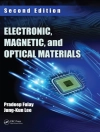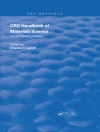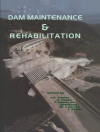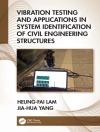The book provides a comprehensive overview of combustion models used in different types of spark ignition engines. In the first generation of spark ignition (SI) engines, the turbulence is created by the shear flow passing through the intake valves, and significantly decays during the intake and compression strokes. The residual turbulence enhances the laminar flame velocity, which is characteristic of the fuel and increases the relative effectiveness of the engine. In this simple two-zone model, the turbulence is estimated empirically; the spherical flame propagation model considers ignition delay, thermodynamics, heat transfer and chemical equilibrium, to obtain the performance and emissions of an SI engine. The model is used extensively by designers and research engineers to handle the fuel-air mixture prepared in the inlet and different geometries of open combustion chambers. The empiricism of the combustion model was progressively dismantled over the years. New 3D models for ignition considering the flow near a spark plug and flame propagation in the bulk gases were developed by incorporating solutions to Reynolds-averaged Navier-Stokes (RANS) equations for the turbulent flow with chemical reactions in the intense computational fluid dynamics. The models became far less empirical and enabled treating new generation direct-injection spark-ignition (DISI) gasoline and gas engines. The more complex layout of DISI engines with passive or active prechamber is successfully handled by them. This book presents details of models of SI engine combustion progressively increasing in complexity, making them accessible to designers, researchers, and even mechanical engineers who are curious to explore the field. This book is a valuable resource for anyone interested in spark ignition combustion.
Содержание
Chapter 1: Introduction.- Chapter 2: Two-Zone Turbulent Combustion Models.- Chapter 3: Variable Valve Timing, Variable Valve Lift.- Chapter 4: Visualisation and modelling of in-cylinder phenomena using optical engines.- Chapter 5: Modelling Flow inside an engine.- Chapter 6: Modelling of Spark Ignition System.- Chapter 7: Modelling of gasoline direct-injection compression ignition.- Chapter 8: Stratified Combustion.- Chapter 9: Modelling of a gasoline-fueled pre-chamber combustion system.- Chapter 10: Design of Active Pre-chamber for Efficient Combustion in Large Bore Gasoline Engines using Numerical Modeling.- Chapter 11: Modelling spark-ignition Prechamber and PFI gas engines.- Chapter 12: Computational studies of flow and combustion characteristics in narrow-throat pre-chamber engines.- Chapter 13: Turbocharging.- Chapter 14: Modelling of Engine Emissions and After-treatment Systems.- Chapter 15: Multiscale Modeling of Catalytic Converters.
Об авторе
P. A. Lakshminarayanan studied at the Indian Institute of Technology (IIT), Madras for his B.Tech., M.S., and Ph.D. degrees. He worked at the Loughborough University of Technology and Kirloskar Oil Engines Ltd for 25 years, before moving to Ashok Leyland in 2002 to head the Engine R&D for about nine years. From 2011 to 2019, he was the Chief Technical Officer and the Technical Adviser at Simpson and Co. Ltd. Currently, he is a visiting professor at IIT Kanpur. He has developed eight diesel and CNG engine platforms and 150 engine types commercially successful in efficiency and cost-effectiveness. Two engine designs received prizes from the Institute of Directors (India). Twelve ideas were patented during the development of engines over 40 years. He has authored 55 research papers in journals and conferences of international repute. Four of them received prizes for integrity and quality of content from the SAE (Arch Colwell Award), Combustion Society (India), AVL (Graz), and AVL (India) in 1983, 1993, 2005, and 2011, respectively. He was elected to the fellowships of SAE (2009), INAE (2013), and ISEES (2018).
Prof. Avinash Kumar Agarwal: Prof. Avinash Kumar Agarwal joined IIT Kanpur in 2001. He worked as a Post-Doctoral Fellow at the Engine Research Center, UW@Madison, USA (1999-2001). His interests are IC engines, combustion, alternate and conventional fuels, lubricating oil tribology, optical diagnostics, laser ignition, HCCI, emissions and particulate control, 1-D and 3-D Simulations of engine processes, and large-bore engines. Prof. Agarwal has published 525+ peer-reviewed international journal and conference papers, 63 edited books, 129 chapters, 16200+ Scopus, and 24494+ Google Scholar citations. He is an editor of FUEL, associated editor of the SAE Journal of Engines, and the ASME Open Journal of Engineering. He has edited “Handbook of Combustion” (5 Volumes; 3168 pages), published by Wiley VCH, Germany. Prof. Agarwal is a Fellow of SAE (2012), a Fellow of ASME (2013), a Fellow of ISEES (2015), a Fellow of INAE (2015), a Fellow of NASI (2018), a Fellow of the Royal Society of Chemistry (2018), a Fellow of American Association of Advancement in Science (2020) and a Fellow of Combustion Institute (2022). For his outstanding contributions, Prof. Agarwal is conferred upon Sir J C Bose National Fellowship (2019) by SERB, SAE India Foundation GURU Award (2022), WSSET Innovation Award-2022, Clarivate Analytics India Citation Award-2017 in Engineering and Technology, Prestigious Shanti Swarup Bhatnagar Prize (2016) in Engineering Sciences, Rajib Goyal Prize in Physical Sciences (2015); NASI-Reliance Industries Platinum Jubilee Award (2012); INAE Silver Jubilee Young Engineer Award (2012); Dr C. V. Raman Young Teachers Award (2011); SAE Ralph R. Teetor Educational Award (2008); INSA Young Scientist Award (2007); UICT Young Scientist Award (2007); INAE Young Engineer Award (2005); Devendra Shukla Research Fellowship (2009-12), Poonam and Prabhu Goyal Endowed Chair Professorship (2013-16), SBI Endowed Chair Professorship (2018-21, 2022-25) at IIT Kanpur; AICTE Career Award for Young Teachers (2004); DST Young Scientist Award (2002); and DST BOYSCAST Fellowship (2002), in addition to inaugural version of Distinguished Alumni Award-2021 by MNIT Jaipur and Distinguished Alumni Award-2022 by IIT Delhi. Prof. Agarwal was a highly cited researcher (2018) in the top ten HCR from India among 4000 HCR researchers globally in 22 fields of inquiry. He is India’s number one Energy researcher in the recently declared Stanford University listing of the top 2% of researchers globally. Also, he has been nominated for Member of the Council of Indian Institute of Technology by the President of India for three years (2022-2025). He is featured in the DST Golden Jubilee Coffee Table Book “75 under 50 Scientists Shaping Today’s INDIA, ” released by Vigyan Prasar, Government of India, on National Science Day, February 28th, 2022.
Prof. Haiwen Ge is Senior Technical Specialist at the Zhejiang Laboratory in China. Dr. Ge received his bachelor’s and master’s degrees from the Department of Thermal Science and Energy Engineering, University of Science and Technology of China. He received his Ph D from Heidelberg University, Germany. He was a post-doctoral fellow at the Engine Research Center, University of Wisconsin-Madison. He worked for Ford Motor Company, Fiat-Chrysler-Automobiles, and John Deere. He taught at the Department of Mechanical Engineering, Texas Tech University before joining Zhejiang Lab. He is the recipient of the SAE Forest R. Mc Farland Award and the SAE Outstanding Oral Presentation Award. Dr. Ge mainly works in the field of internal combustion engines, turbulent combustion, spray combustion, and computational optimization. He has published 1 monograph, 2 book chapters, 78 technical papers, and 79 conference papers/posters. He was the Chair of the SAE General Powertrain Development Committee. Currently, he is an editorial member of the journal Computational Thermal Sciences, a member of the ASTFE Thermal Science Technical Committee, an executive associate of the ASME Internal Combustion Engine Division.
Dr. J. M. Mallikarjuna is Professor in the Department of Mechanical Engineering at the Indian Institute of Technology Madras. Dr. Mallikarjuna received his Ph D from the Indian Institute of Technology Madras. Prior to joining IIT Madras, he worked in different academic universities in various positions. Dr. Mallikarjuna mainly works in the field of internal combustion engines and alternative fuels for transportation. He was involved in developing a particle image velocimetry (PIV) facility at IIT Madras and used it effectively for the in-cylinder flow analysis of engines. He also works on the usage of hydrogen, biodiesel, and alcohols in IC engines to evaluate their performance and emission characteristics. His research work also covers advanced engine technologies like low-temperature combustion (LTC), homogeneous charge compression ignition engines (HCCI), gasoline direct engines (GDI), etc. To date, he has published more than 150 technical articles in international journals and conference proceedings.












